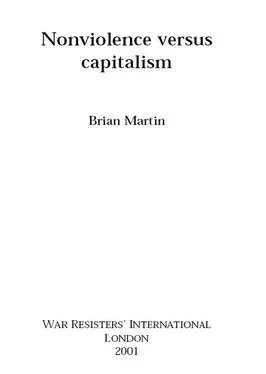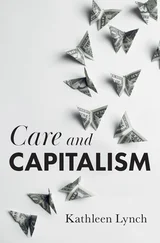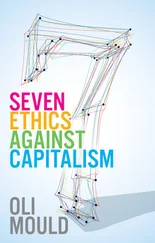Capitalism does not operate according to this principle. Instead, the standard idea is that allocation of the economic product is through jobs: people get rewarded for doing the work to keep society going. This is a sort of meritocracy. However, although jobs do some of the allocation, there’s far more to the story. What actually determines a large proportion of the allocation of goods and services are:
• ownership of capital (providing profits to owners);
• credentials (providing high salaries to those with the background and opportunities to obtain degrees and enter occupational areas with protection against those without credentials [6] . Randall Collins, The Credential Society: An Historical Sociology of Education and Stratification (New York: Academic Press, 1979); Ronald Dore, The Diploma Disease: Education, Qualification and Development (London: Allen and Unwin, 1976).
);
• executive salaries and perks (providing high return to managers with more power);
• state interventions (welfare, pensions);
• unpaid work (housework, child rearing).
Within the framework of the regulated market, solutions to economic inequality include reducing working hours, increasing wages, reducing credential barriers, taxing wealth and paying for housework. However, none of these challenges the foundations of capitalism.
Philosophers who look at “just desert” find little justification for unequal rewards. [7] . On the psychological aspects, see Morton Deutsch, Distributive Justice: A Social-Psychological Perspective (New Haven: Yale University Press, 1985).
Why should someone receive more simply because they have rich parents or high natural ability?
There is plenty of production in the world today to satisfy everyone’s needs but not, as the Gandhian saying goes, anyone’s greed. The problem is distribution. [8] . On the way that social and economic changes are causing greater inequality, see Robert H. Frank and Philip J. Cook, The Winner-Take-All Society: Why the Few at the Top Get So Much More Than the Rest of Us (New York: Penguin, 1996).
Principle 3: Satisfying work should be available to everyone who wants it .
Under capitalism, this principle is not fulfilled. People are expected to adapt to fill available jobs, rather than work being tailored to the needs of people. [9] . There is a large body of writing on the nature of and rationale for work. See for example P. D. Anthony, The Ideology of Work (London: Tavistock, 1977); Vernon Richards (ed.), Why Work? Arguments for the Leisure Society (London: Freedom Press, 1983).
A job is typically regarded as an unpleasant activity that is necessary to obtain income for a good life.
Compared to a society that distributes goods to those who most need them, under capitalism there is a great deal of inappropriate production, wasted effort and pointless activity, including advertising, planned obsolescence, military production, provision of luxuries for the rich and unnecessary work and jobs that serve only to help justify receiving a share of society’s resources. [10] . On the enormous surplus of production over needs, see J. W. Smith, The World’s Wasted Wealth 2: Save Our Wealth, Save Our Environment (Cambria, CA: Institute for Economic Democracy, 1994).
In contrast, there is a great deal of work that is needed but for which there is little or no pay, including child rearing, provision of goods and services for the poor, environmental improvements, and friendship and support for people who are lonely or have disabilities.
Principle 4: The system should be designed and run by the people themselves, rather than authorities or experts .
Contrary to this, capitalism is founded on control by those with the most money and power. Participation by the people is fostered only to the extent that it helps firms compete or maintains managerial control (as in limited forms of industrial democracy).
Principle 5: The system should be based on nonviolence .
Contrary to this, capitalism is founded on the state’s use of its police and military power to protect the system of ownership.
Thus, capitalism fails on all five of these principles. Every one of them is a challenge to the capitalist way of doing things.
With this brief background on problems with and strengths of capitalism, it is time to turn to key areas from the viewpoint of nonviolence strategy. Three are outlined here: systems of violence, belief systems and alternatives. These arise from central aspects of nonviolence strategy. First, since the strategy is based on nonviolence, it is obvious to focus on the violent foundations of capitalism. Second, since the consent theory of power underlies nonviolent action, it is valuable to look at how capitalism fosters consent. Third, the other side to nonviolent action’s role in challenging oppressive systems is the constructive programme, namely the building of a nonviolent society. This leads to the issue of alternatives, in particular the way in which capitalism destroys or coopts alternatives.
Capitalism’s link with systems of violence
From the point of view of nonviolence, a crucial feature of capitalism is its links with systems of violence, notably the military and police. For some capitalist countries, which are run as repressive states, this connection is obvious. But for capitalist countries with representative governments, the connections between the military, police and capitalist social relations are less overt.
For most of the time, overt state violence is not required to defend capitalism, since most people go along with the way things are. If the challenge to capitalism is violent, such as by a revolutionary party that uses bombings or assaults, then police and military forces are used to crush the challengers. But sometimes there are serious nonviolent challenges, especially when workers organise. Troops are typically called out when workers in a key sector (such as electricity or transport) go on strike, when workers take over running of a factory or business, or when there is a general strike. Spy agencies monitor and disrupt groups and movements that might be a threat to business or government. Police target groups that challenge property relations, such as workers and environmentalists taking direct action.
At the core of capitalism is private property. [11] . Capitalism based on exchange of owned properties may be transforming into a postmodern system of negotiated access in a networked world, such as through borrowing, renting, outsourcing and franchising. See Jeremy Rifkin, The Age of Access: The New Culture of Hypercapitalism, Where All of Life Is a Paid-for Experience (New York: Tarcher/Putnam, 2000). However, even with such changes, the role of state power in maintaining the system’s elements of control remains crucial.
Military and police power is needed to maintain and extend the system of ownership, but this is hidden behind the routine operation of the legal and regulatory system, which is seldom perceived as founded on violence. If a person or corporation believes that their money or property has been taken illegally — for example through insider trading or patent violation — they can go to court to seek redress. The court decision, if not obeyed voluntarily, can be enforced by police, for example confiscation of goods or even imprisonment. For most of the time, property rights, as interpreted by the courts and various other government agencies, are accepted by everyone concerned. That goes for billion-dollar share transactions as well as everyday purchases of goods.
Petty theft, big-time swindles and organised crime are not major challenges to the property system, since they accept the legitimacy of property and are simply attempts to change ownership in an illegal manner. Criminals are seldom happy for anyone to steal from them. Principled challenges to property, such as squatting and workers’ control, are far more threatening.
Читать дальше

![Brian Jacques - Martin the Warrior [Redwall 6]](/books/128385/brian-jacques-martin-the-warrior-redwall-6-thumb.webp)










